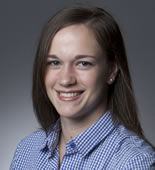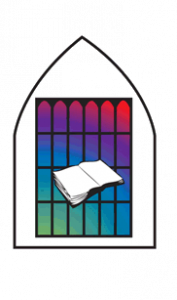The Cornell Law Library is pleased to announce the 2014 recipients of The Cornell Law Library Robert Cantwell Prize for Exemplary Student Research:
First Prize:
The Religion of Alcoholics Anonymous (“AA”): Applying the Clergy Privilege to Certain AA Communications, by Ari Diaconis, 3L
 Ari Diaconis cast a wide net in compiling his research, drawing from over 180 sources including in-person interviews, Bible scripture and empirical studies while also using traditional legal research and analysis.
Ari Diaconis cast a wide net in compiling his research, drawing from over 180 sources including in-person interviews, Bible scripture and empirical studies while also using traditional legal research and analysis.
Diaconis argued for the application of the clergy privilege to Alcoholics Anonymous (“AA”) by constructing a detailed history of AA from its origins to present day, relying on a variety of primary and secondary sources including interviews with current members. He then used that historical research to argue that AA constitutes a religion under Supreme Court precedent, providing analysis of the Court’s jurisprudence dating to the 19th Century.
“I learned a tremendous amount from conducting the research necessary for this Note,” he said of the process. “The most important of which include: (1) take things one piece at a time (even sentence by sentence at times); (2) pick topics that genuinely interest you; (3) do not always look for sources that support your thesis; rather, seek the truth; (4) do not trust everything you read; and (5) ask for help.”
Second Prize:
The Law Review Divide: A Study of Gender Diversity on the Top Twenty Law Reviews, by Lynne Kolodinsky, 3L
 Lynne Kolodinsky used empirical analysis as the basis for her research in examining gender diversity in law review membership.
Lynne Kolodinsky used empirical analysis as the basis for her research in examining gender diversity in law review membership.
Kolodinsky designed an original study seeking to explore the apparent gender disparity among top law review journals and possible explanations for that gap. Building on previous scholarship on gender diversity in legal academia, her goal was to produce “the first comprehensive statistical analysis of independently reported and verified data on the gender diversity of law review membership.”
Kolodinsky collected school enrollment data from the archives of the ABA-LSAC Official Guide to ABA-Approved Law Schools and also gathered information on law review admissions processes as the basis for her study. She then combined her findings with a broader discussion of women’s evolving experiences in the traditionally male-dominated law school setting using a variety of more traditional legal scholarship sources.
“Without this experience, I doubt I would have had any exposure to [statistical] software in law school,” she said. “I also learned how to effectively synthesize empirics with theory to make an original argument that contributes to the broader sphere of academic studies relating to women’s experiences in the legal field.”
About the Cantwell Prize:
A review panel comprised of Librarians Amy Emerson, Nina Scholtz and Mark Williams selected the winners from among 29 competitive entries.
Funding for the Prize is provided by an endowment given to the Law Library by Barbara Cantwell in honor of her late husband, Robert Cantwell, a 1956 graduate of Cornell Law School.
In addition to receiving a monetary award, the winners are also invited to publish their papers in Scholarship@Cornell Law, the Law Library’s digital repository, and to feature their papers in Reading Room displays.







